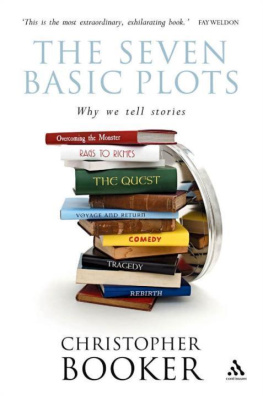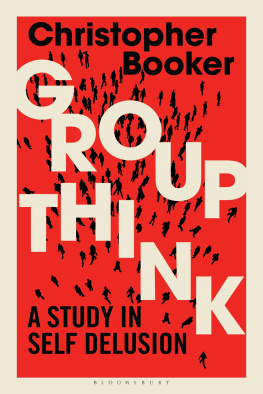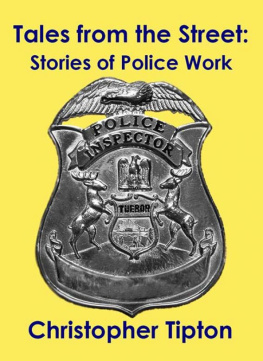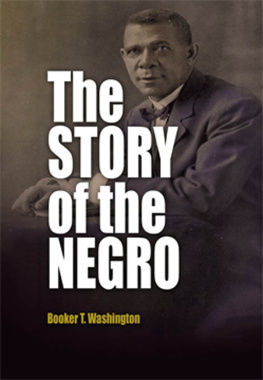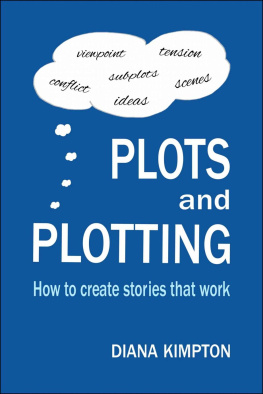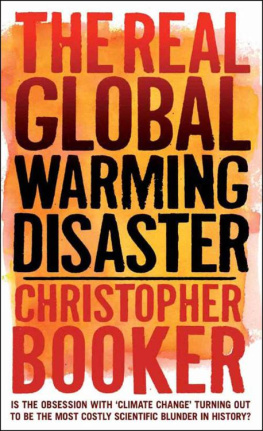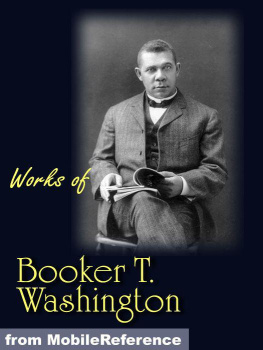Christopher Booker - The Seven Basic Plots: Why We Tell Stories
Here you can read online Christopher Booker - The Seven Basic Plots: Why We Tell Stories full text of the book (entire story) in english for free. Download pdf and epub, get meaning, cover and reviews about this ebook. year: 2004, publisher: Continuum International Publishing Group, genre: Art. Description of the work, (preface) as well as reviews are available. Best literature library LitArk.com created for fans of good reading and offers a wide selection of genres:
Romance novel
Science fiction
Adventure
Detective
Science
History
Home and family
Prose
Art
Politics
Computer
Non-fiction
Religion
Business
Children
Humor
Choose a favorite category and find really read worthwhile books. Enjoy immersion in the world of imagination, feel the emotions of the characters or learn something new for yourself, make an fascinating discovery.
- Book:The Seven Basic Plots: Why We Tell Stories
- Author:
- Publisher:Continuum International Publishing Group
- Genre:
- Year:2004
- Rating:4 / 5
- Favourites:Add to favourites
- Your mark:
- 80
- 1
- 2
- 3
- 4
- 5
The Seven Basic Plots: Why We Tell Stories: summary, description and annotation
We offer to read an annotation, description, summary or preface (depends on what the author of the book "The Seven Basic Plots: Why We Tell Stories" wrote himself). If you haven't found the necessary information about the book — write in the comments, we will try to find it.
The Seven Basic Plots: Why We Tell Stories — read online for free the complete book (whole text) full work
Below is the text of the book, divided by pages. System saving the place of the last page read, allows you to conveniently read the book "The Seven Basic Plots: Why We Tell Stories" online for free, without having to search again every time where you left off. Put a bookmark, and you can go to the page where you finished reading at any time.
Font size:
Interval:
Bookmark:


Why we tell stories

Why we tell stories
BY
CHRISTOPHER BOOKER
`We dance around in a ring and suppose; But the Secret sits in the middle - and knows.'
Robert Frost

This book is dedicated to the memory of my parents, John and Margaret Booker, who, between them, gave me such a magical introduction to the world of storytelling.

........................................................................................ 1
PART ONE: THE SEVEN GATEWAYS TO THE UNDERWORLD
.......................................................................................................... 17
Chapter 1 .............................................................................. 21
............................ 31
................................................................................................ 51
...................................................................................................... 69
........................................................................................ 87
.......................................................................................................... 107
.................................................................. 131
.......................................................................... 153
...................................................................... 173
.............................................................. 181
............................................................................................................ 193
.................................................. 215
........ 229
PART TWO: THE COMPLETE HAPPY ENDING
.......................................................................................................... 239
Chapter 13 ............................................................................................ 241
.................................... 253
...................................................................................... 267
.................................................................................... 277
................................................ 289
.......................................................................................... 297
........................................................................................ 311
................................................................................................ 329
PART THREE: MISSING THE MARK
Chapter 21 ...................................... 347
.................. 367
................ 385
.......................................... 399
...................................... 413
............................................ 425
.......................................... 455
............ 495
.................................................................................................. 505
........................................ 517
PART FOUR: WHY WE TELL STORIES
Chapter 31 .............................................. 543
........................................ 571
...................................... 593
............................................ 645
.......................................................... 699
........................................................................................................ 703
................................................................................................................ 707
........................................................................................................................ 711
.......................................................................................................... 715
...................................................................................................................... 720
This reprint includes corrections of various factual or typographical errors which appeared in earlier printings of this book. If readers spot any further mistakes, the author would be grateful if these could be passed on to him for correction in future editions.

`He had likewise projected, but at what part of his life is not known, a work to show how small a quantity of REAL FICTION there is in the world; and that the same images, with very little variation, have served all the authors who have ever written.'
Dr Samuel Johnson, recorded in Boswell's Life of Johnson
In the mid-1970s queues formed outside cinemas all over the Western world to see one of the most dramatic horror films ever made. Steven Spielberg's Jaws, which heralded the arrival of the most successful popular storyteller of the latetwentieth century, told how the peace of a little Long Island seaside resort, Amity, was rudely shattered by the arrival offshore of a monstrous shark, of almost supernatural power. For weeks on end the citizens are thrown into a stew of fear and confusion by the shark's savage attacks on one victim after another. Finally, when the sense of threat seems almost too much to bear, the hero of the story, the local police chief Brody, sets out with two companions to do battle with the monster. There is a tremendous climactic fight, with much severing of limbs and threshing about underwater, until at last the shark is slain. The community comes together in universal jubilation. The great threat has been lifted. Life in Amity can begin again.
It is safe to assume that few of the millions of sophisticated twentieth-century moviegoers who were gripped by this tale as it unfolded from the screens of a thousand luxury cinemas would have paused to think they had much in common with an unkempt bunch of animal-skinned Saxon warriors, huddled round the fire of some draughty, wattle-and-daub hall 1200 years before, as they listened to the minstrel chanting out the verses of an epic poem.
Yet just consider the story of that ancient poem which has survived to our own day mainly to be dissected in examination rooms by generations of bored and baffled students of Anglo-Saxon literature.
The first part of Beowulf tells of how the peace of the little seaside community of Heorot is rudely shattered by the arrival of Grendel, a monster of almost supernatural power, who lives in the depths of a nearby lake. The inhabitants of Heorot are thrown into a stew of fear and confusion as, night after night, Grendel makes his mysterious attacks on the hall in which they sleep, seizing one victim after another and tearing them to pieces. Finally, when the sense of threat seems almost too much to bear, the hero Beowulf sets out to do battle, first with Grendel, then with his even more terrible monster mother. There is a tremendous climactic fight, with much severing of limbs and threshing about underwater, until at last both monsters are slain. The community comes together in jubilation. The great threat has been lifted. Life in Heorot can begin again.
Font size:
Interval:
Bookmark:
Similar books «The Seven Basic Plots: Why We Tell Stories»
Look at similar books to The Seven Basic Plots: Why We Tell Stories. We have selected literature similar in name and meaning in the hope of providing readers with more options to find new, interesting, not yet read works.
Discussion, reviews of the book The Seven Basic Plots: Why We Tell Stories and just readers' own opinions. Leave your comments, write what you think about the work, its meaning or the main characters. Specify what exactly you liked and what you didn't like, and why you think so.

